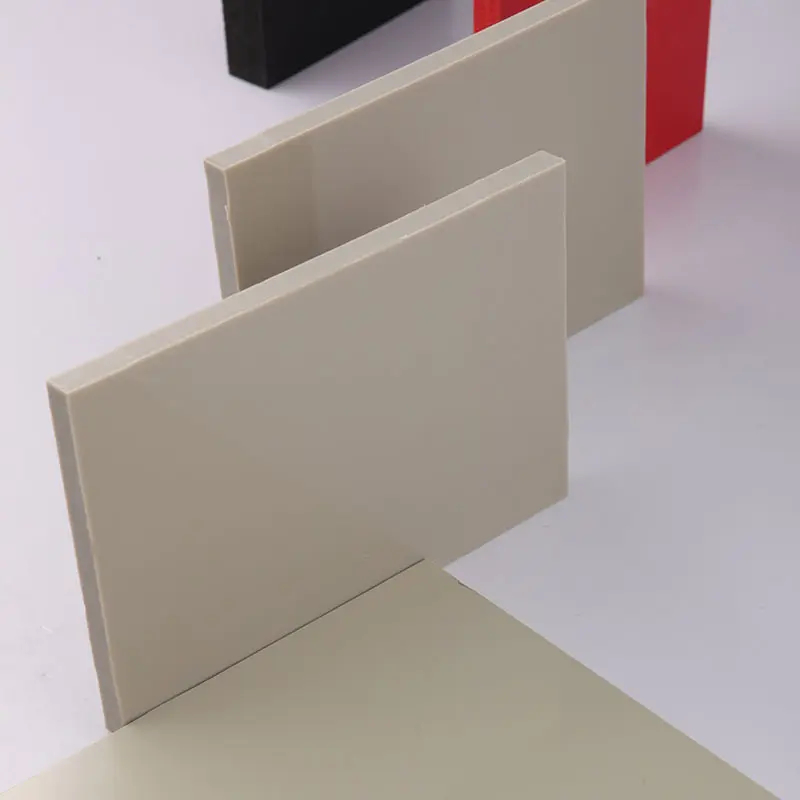ಡಿಸೆ . 06, 2024 16:56 Back to list
Alternative Uses and Benefits of 110mm PVC Pipes for Home Projects
The Versatility and Applications of 110mm PVC Pipe
In the realm of construction and plumbing, materials play a crucial role in ensuring efficiency, durability, and cost-effectiveness. One such widely used material is PVC (Polyvinyl Chloride), particularly in the form of 110mm PVC pipes. These pipes are commonly employed in various applications due to their unique properties, ease of installation, and overall performance.
Understanding PVC Pipes
PVC pipes are made from a synthetic plastic polymer known as polyvinyl chloride. This material is recognized for its strength, resistance to corrosion, and lightweight characteristics, making it a preferred choice over traditional materials like metal or clay. The 110mm diameter version is particularly popular in both residential and commercial projects, serving a wide range of plumbing and drainage applications.
Key Advantages of 110mm PVC Pipes
1. Corrosion Resistance Unlike metal pipes that may rust or degrade over time, 110mm PVC pipes are resistant to a variety of chemicals and environmental factors. This allows them to maintain structural integrity even in harsh conditions, ensuring a long lifespan.
2. Lightweight and Easy to Handle One of the significant advantages of PVC pipes is their lightweight nature. The 110mm size is manageable for most workers, which simplifies transport and installation processes. This reduces labor costs and time during construction or renovation projects.
3. Cost-Effective In comparison to other piping materials, PVC is relatively inexpensive. Its lower material cost, combined with reduced labor expenses due to easy installation, makes it a budget-friendly option for many projects.
4. Versatility 110mm PVC pipes are versatile, making them suitable for a variety of applications. They can be used for drainage, sewage, and venting systems in residential homes, as well as for conduits for electrical wiring in industrial settings.
5. Smooth Surface for Flow Efficiency The inner surface of PVC pipes is smooth, which minimizes friction loss and promotes efficient fluid flow. This characteristic makes them ideal for both pressurized and non-pressurized systems.
110mm pvc pipe

Applications of 110mm PVC Pipes
1. Drainage Systems One of the most common uses for 110mm PVC pipes is in drainage and sewer systems. These pipes effectively transport waste water away from buildings, ensuring proper sanitation and hygiene.
2. Agricultural Uses In agriculture, 110mm PVC pipes are often used for irrigation systems. Their durability and resistance to chemicals make them suitable for transporting water in various agricultural applications.
3. Telecommunications PVC pipes are also utilized as conduits for electrical and telecommunications wiring. The non-conductive properties of PVC make it a safe choice for protecting wiring from environmental damage.
4. Residential Plumbing Many homeowners choose 110mm PVC pipes for bathroom and kitchen plumbing due to their reliability and ease of installation. They are often used for drain lines and vent pipes.
5. Building Projects In construction, these pipes serve multiple purposes, including drainage, venting, and as part of HVAC systems. Their ability to withstand pressure makes them suitable for various building services.
Installation and Maintenance
Installing 110mm PVC pipes is straightforward, often requiring only basic tools and minimal training. The pipes can be joined using solvent cement, which creates a strong, waterproof seal. Additionally, maintaining PVC pipes is simple, as they typically require little to no upkeep. Regular inspections for cracks or leaks can go a long way in ensuring their longevity.
Conclusion
In conclusion, 110mm PVC pipes are an invaluable component in modern construction and plumbing. Their numerous advantages, including corrosion resistance, cost-effectiveness, and versatility, make them a popular choice across various applications. Whether used in drainage systems, agricultural irrigation, or residential plumbing, these pipes offer reliability and efficiency that are hard to beat. As building and infrastructure needs continue to evolve, PVC pipes will undoubtedly remain a foundational element in constructing a robust and sustainable environment.
-
HDPE Natural Sheet: Durable, Food-Grade & Versatile Plastic Solutions
NewsAug.27,2025
-
Durable Glossy PVC Rigid Sheet | Premium High-Shine Panels
NewsAug.26,2025
-
Durable PP Rigid Sheet: Lightweight, Chemical Resistant Solutions
NewsAug.21,2025
-
PVC Grey Sheet for Extraction: Chemical Resistant & Durable
NewsAug.19,2025
-
Durable PVC Pipe Fittings for Plumbing & Irrigation Needs
NewsAug.18,2025
-
HDPE Steel Belt Reinforced Spiral Corrugated Pipe | High Strength
NewsAug.17,2025

